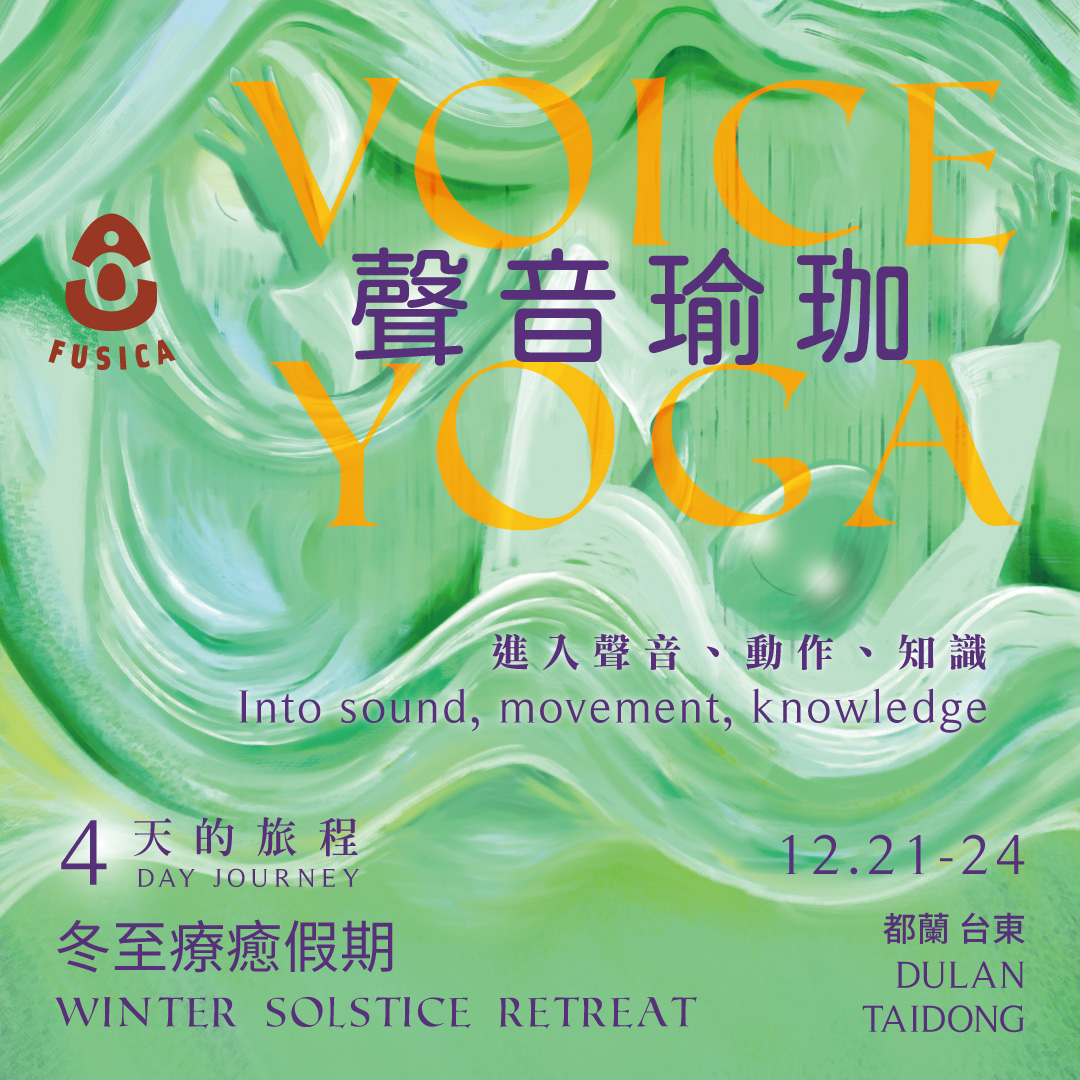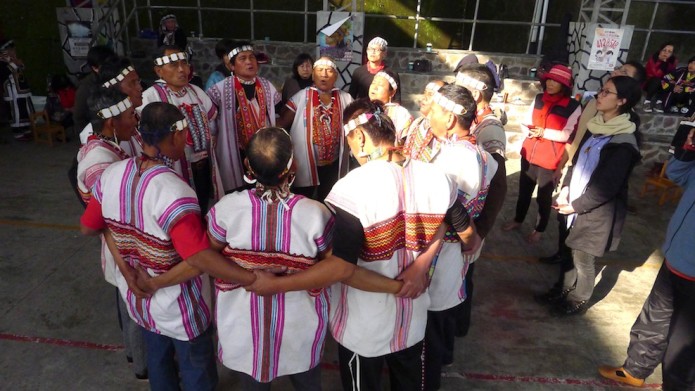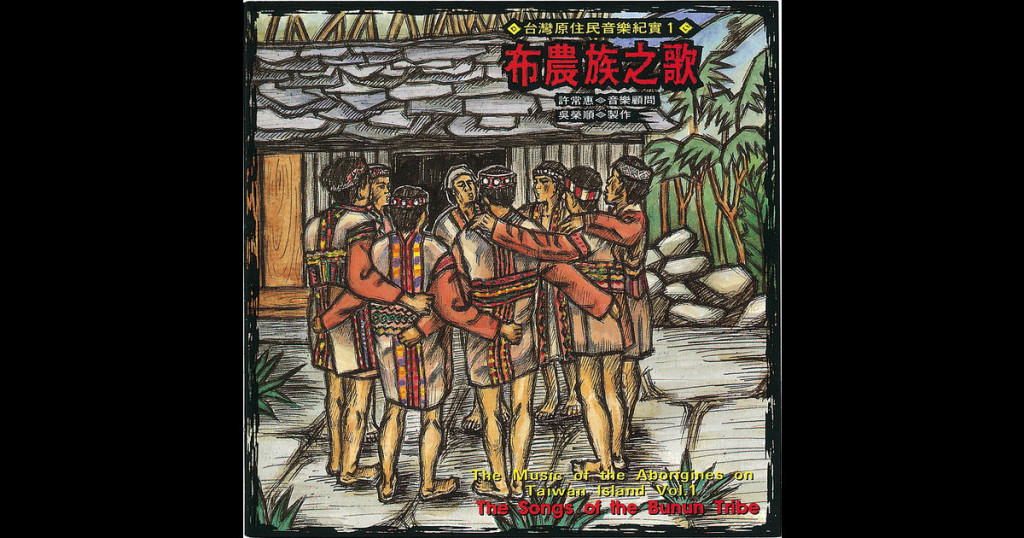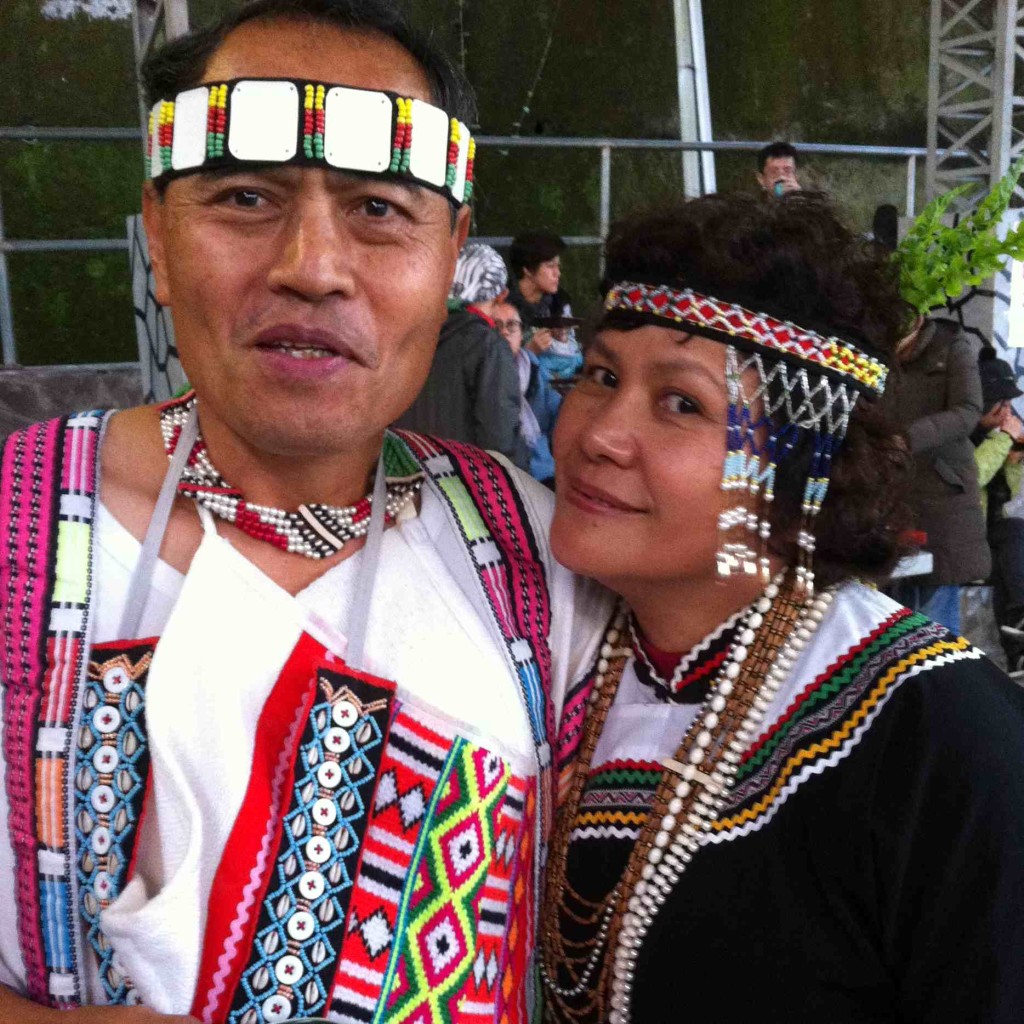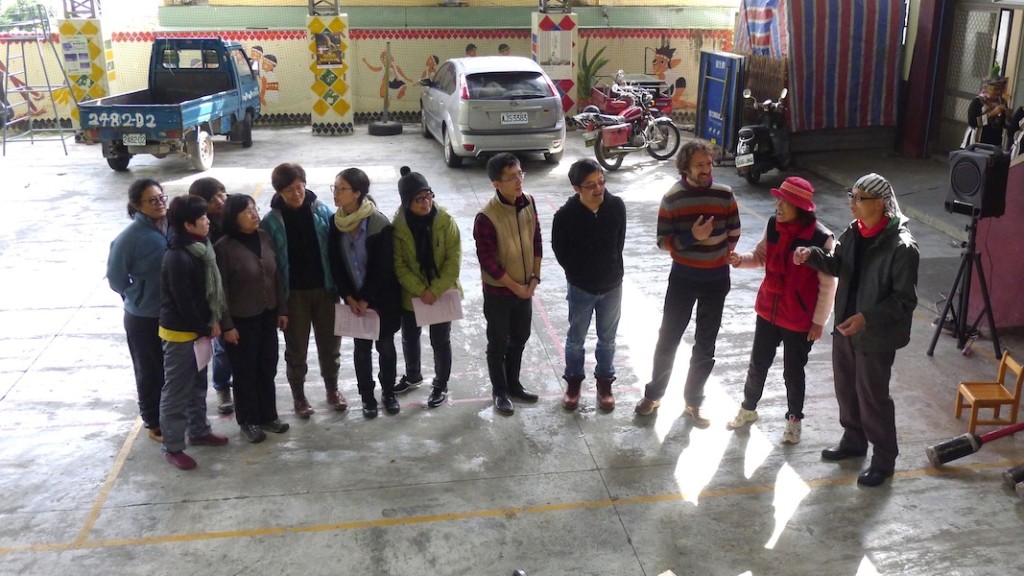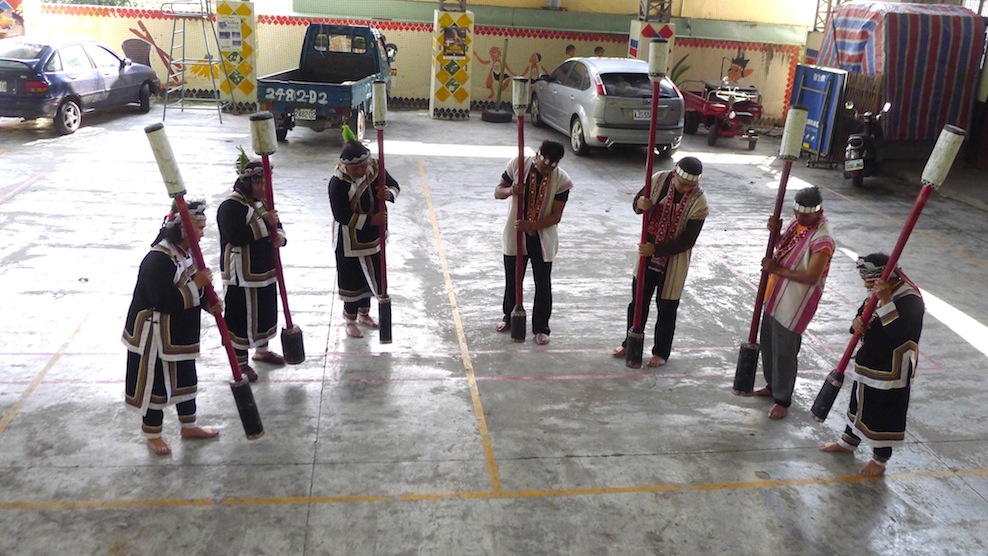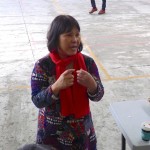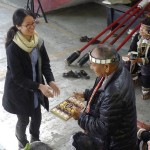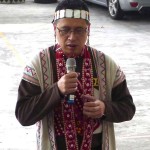Break the wall with sounds. The world is much wider than you thought.
用聲音打破那道高牆 看見比你想像更廣大的世界
聲音的海洋 深入傳統,創造屬於自己的傳統,與布農族一起歌唱。
(English below)
**************************************
聲音的海洋
◇ 世界各地的傳統音樂
◇ 創造自己的民謠
◇ 和布農族朋友一起歌唱
◇ 給平常療癒別人的你的平日療癒假期
*************************************
日期: 2024年9月22-25日(週日至週三)
地點:南投埔里-江山樂活, 南投信義鄉
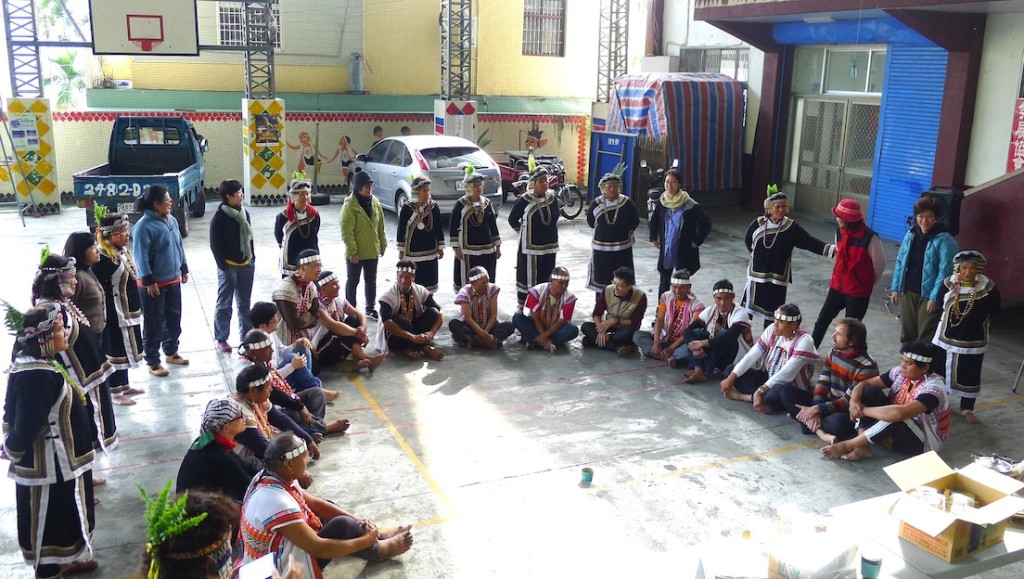
Singing a song with the males in center and the females surrounding.
在這三天裡,我們深入探索「聲音的海洋」,我們尋找來自世界各地的未知傳統,聆聽過往的經典並嘗試創作我們自己的版本。您還將學習如何自己或與他人一起即興創作一首傳統歌曲(一首催眠曲?一首祈禱曲?一首歡樂的問候歌?)。如果您已經喜歡唱歌,並且知道自己的聲音有著如此多的色彩。但是只有其中一些色彩在日常生活中表達出來,現在我們要擴展這種創造性和聲音的潛力,一起看見自己聲音的光譜。
加入我們,一同慶祝人類聲音的力量和潛藏在其中的創造力。毫無疑問,你的祖先知道民謠、宗教聖詩、儀式詠唱:讓它們以新的形式再次浮出水面。在我們探索的起點和亮點上,來自南投信義鄉明德部落的布農族非常樂意在他們每週的歌唱會上歡迎我們。你將有機會與他們近距離合唱,並從中學習他們創作複音多聲部歌曲的方式,並嘗試與他們一起合唱。這是對這座我們摯愛島嶼的許多美好傳統之一的親身沉浸,是極少數人曾經擁有的獨特機會!
**************************************
【課程安排】
/第一天 週日/
16:00-18:00 抵達 & 住宿 Check-in
18:00-19:30 晚餐
19:30-21:00 工作坊介紹 「聲音的海洋」
/第二天 週一/
10:00-12:30 工作坊1:探索布農族傳統吟唱的特徵與技巧
12:30-13:30 午餐 & 午睡
13:30-15:30 工作坊2:練習一些布農族歌曲和自由的歌唱
15:30-16:00 準備前往部落的物品(相機、服裝、防蚊液等)
16:00-17:00 前往的路途
17:00-18:30 路上的簡便晚餐
18:30-20:00 參與布農族的部落練唱時刻
20:00-21:00 部落合照時間,交流時間
21:00-22:00 回程埔里&印象時刻討論
/第三天 週二/
10:00-12:30 工作坊3:發現更多傳統 & 創造我們的傳統
12:30-14:30 午餐&休息
14:30-18:00 工作坊4:探索更多其他傳統,或是器樂使用的傳統
18:00-19:30 晚餐
20:00-????? 果醬音樂之夜 玩音樂直到睡著為止XDD
/第四天 週三/
9:30-12:30 工作坊5:從前幾天的體驗更深層探索
12:30-13:30 午餐
14:00-15:30 工作坊6:整合這幾天所學習到的
15:30-16:00 感恩分享&QA 時間
16:00-17:00 活動結束

活動舉辦方保有異動時間和主題的權利。
**************************************
【對象】
任何愛唱歌跟充滿好奇心的人都可以參加。
我們希望營造包容並接納差異的工作氛圍。我們會確保正在發展身心靈各面向的學員可以在安全、全然被支持的環境下成長並探索。
如果想知道Mark的上課風格適不適合你,可以來上每週五早上滿四人開班的〈聲音瑜珈-台北〉。
【開課人數】:最少8人,最多16人。
【語言】: 英文+中文(全程翻譯)
【行前準備】
我們會提供一些布農族的音樂。請多聽來為我們跟布農族朋友的合唱做準備。
【課程地點/住宿&餐食】
南投縣埔里鎮
桃米里水上巷68號
https://maps.app.goo.gl/W54SU11rUBJkpQVS7
工作坊期間的餐食皆是由女主人親手製作的美味蔬食。
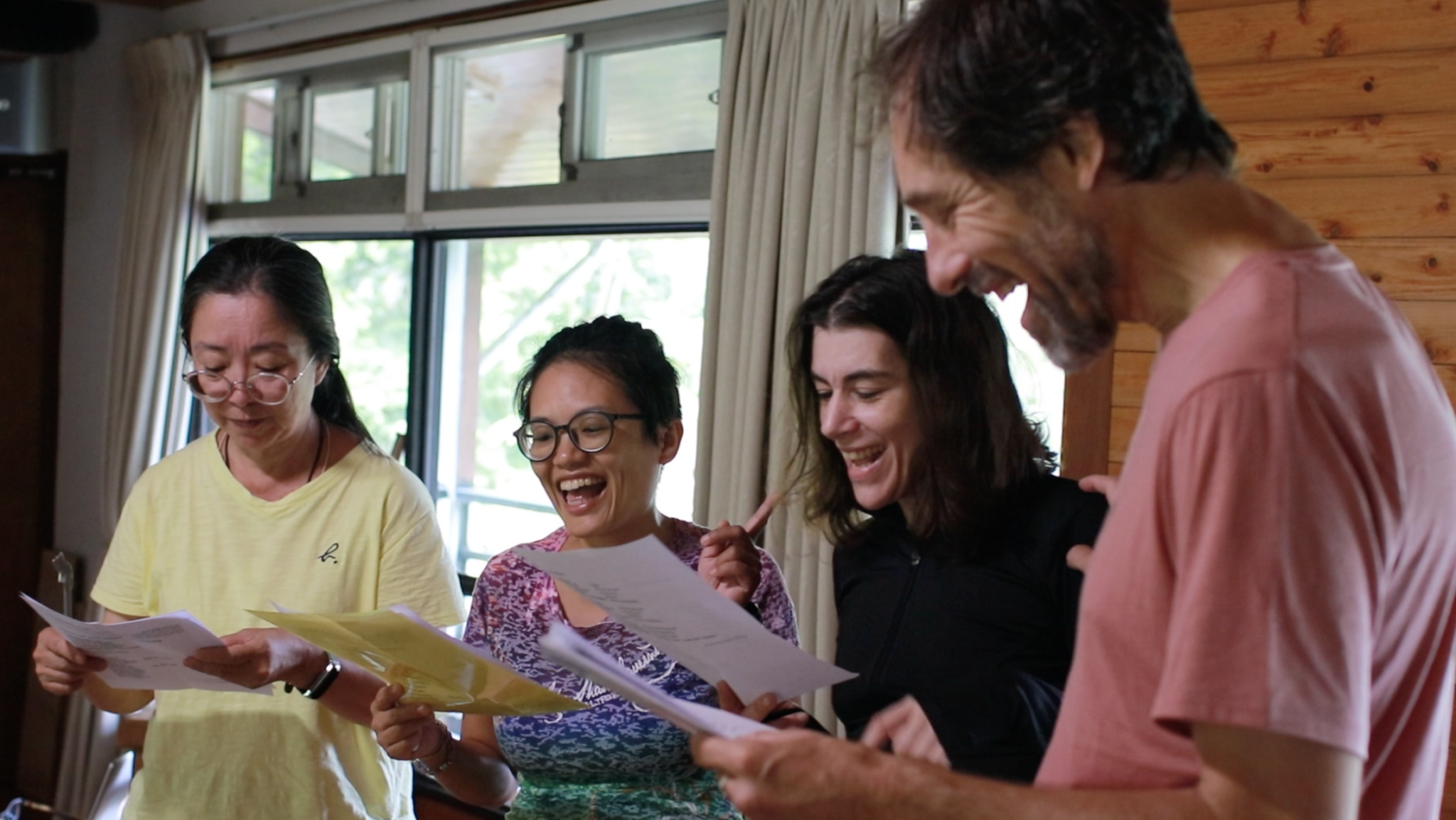
【關於Mark】
Mark van Tongeren,來自荷蘭的聲音探索者,對藝術、科學及冥想傳統的融合有著深厚的興趣與經驗。Mark在劇場、音樂、舞蹈製作等領域有30年的資歷,並自荷蘭萊登大學的創意與表演藝術學院取得博士學位。他練習瑜伽已有約25年,並在大約12年前創建了一種融合藝術表演工具的瑜伽形式。自青少年時期起,他就開始演奏、實驗和研究各種聲音、音樂和表演實踐,並不斷擴展他的「聲音詞彙」。
【我們的團隊】
帶領者: Mark Van Tongeren
活動舉辦者:Jackal Mei
翻譯:Hong Hong Lin
行政助理:張惜音 Sunny
【好奇嗎?請來信或透過Line了解詳情以及報名】
一般問題,報名及住宿問題,請聯繫Jackal Mei:
Email:jackallala@gmail.com
Line ID:jackallala
Mobile:+886 936596910
我們會盡量於三日內回覆訊息
【報名日期】
報名開放日期:2024 年7月9日
超早鳥優惠:至 2024 年7月23日
早鳥優惠:至 2024 年8月15日
報名結束日期:至 2024 年9月8日

【費用】
◆原價:22.000 NT$
◆早鳥優惠:19,000 NT$
◆早鳥雙人:18,000 NT$ (需兩人同時報名)
◆微早鳥:20,000 NT$
◆舊生價:17,000 NT$ (參加過馬克工作坊5個整天學員)
◆TOSA泛音協會會員價:17,000 NT$
◆經濟方面需要協助的藝術家(需有證明) :16,000 NT$
◆學生年長者:17,600 NT$
◆iuoouI價:歡迎來信訊問
【費用包含】
-工作坊課程費用
-週日晚上至週三中午的早午晚餐、下午茶咖啡
-週一從埔里及信義之間的交通接駁
-活動全程保險
【費用不包含】
– 至埔里的交通
– 住宿。住宿將提前安排,三晚住宿的價格範圍
【三晚住宿價】
㊣溫馨套房:
★雙人房:2,700NT$ (1大床 / 1-2人)
★四人房:5,400NT$ (2大床 / 2-4人)
㊣豪華檜木套房:
雙人房:5,400 NT$ (1 大床 / 1-2人)
四人房:7,800 NT$ (1大床+2小床 / 2-4人)
*確定房型後,請將費用加上課程費用一同匯款完成,感謝
【匯款帳號】
銀行:中國信託敦南分行(代號:822)
帳號:163540306745
戶名:MARK CHRISTIAAN VAN TONGEREN

Mark van Tongeren recording the Pasi But But in 2004
【報名手續】
1.請登入Google表單
https://forms.gle/muFwyNfR7s7CLBky7
2.確認報名費用後,進行學費+住宿費匯款
3.匯款完成後,請聯絡
—————————————–
請以手機、Line、Email 擇一聯繫Jackal
–手機0936-596-910
—LINE ID: jackallala
—-Email:jackallala@gmail.com
————————————————–
3.經確認款項後,將在五天內發出報名確認信件,也會與您確認行程詳細事宜
【取消報名】
課程前31-60天取消報名收取10%行政費。
課程前30-15天取消報名,主辦方將保留50%費用;
課程前14天取消,主辦方將保留80%費用。
如果你找人來替代你來上課,我們仍將保留10%作為行政費。
【責任歸屬】
報名此工作坊代表你了解: 1) 工作坊可能會有劇烈肢體運動,引起身體跟心理的衝擊。2) 工作坊中的每項活動都不是強制性的,你必須衡量自身狀況(身體/心理/情緒)來決定要不要參與。3) 你會對自己的身體及心理狀態負責,主辦方不承擔任何相關的傷害、損失及賠償責任。

Ocean of Voices
Break the wall with sounds. The world is much wider than you thought.
PROGRAM OUTLINE
In three days we dive deep into the Ocean of Sound, we uncover unknown traditions from around the globe, listen to examples and try out our own versions. You also learn how to create a traditional song (A lullaby? An invocation? A cheerful greeting song?) by yourself, or together, on the go. You already love to sing and already know your voice has so many shades. But only some of these shades find expression in everyday life, and now we expand this creative, sonic potential.
Join us for a celebration of the power of the human voice and of creative imagination lurking underneath the surface. Surely your ancestors knew folk songs, religious hymns, ceremonial chants: let them come back to the surface again, in a new guise. At the start and highlight of our exploration, the Bunun from XinYi are so kind to welcome us during their weekly singing session. You will have a chance to sing with them, up-close, and in this way you learn how they create their polyphonic songs and can try to join in with them. A first-hand immersion in one of the many living traditions of this beautiful island and a unique chance very few people have ever had!
DATES AND TIMES
Sunday 22 September
16-18 arrival time, check-in
18-19:30 dinner
19:30-21:00 introduction session Ocean of Voices.
Monday 23 September
10-12:30 practice: exploring techniques of Bunun and related music
12:30-13:30 lunchbreak
13:30-15:30 practice some Bunun songs and free-style singing
16:00 Leave for XinYi and for early diner
18:30-20:00 session with the Bunun
21:00 Return to our BNB and aftertalk
Tuesday 24 September
10-12:30 practice: discover more traditions, create our own
12:30-14:30 break
14:30-18:00 practice: exploring different vocal (maybe instrumental) traditions
18-19:30 dinner
Special Evening Jam: non-stop music making
Wednesday 25 September
9:30-12:30 session: go through Bunun and other practices, rounding up
12:30-13:30 lunch
14:00-15:30 last session, harvesting what we learnt
15:30-16:00 sharing, Q&A
16:00-17:00 departure time
We reserve the right to change the program times and themes.

PLACE
Jiang shan le hou
Puli, Nantou
https://maps.app.goo.gl/W54SU11rUBJkpQVS7
Puli, Nantou
All meals are delicious, creative vegetarian cooking by our hostess Hui Mei.
FOR WHOM?
Anyone who is curious and confident enough to sing with others.
(Minimum: 8, maximum:16 people)
LANGUAGES
English + Chinese
HOW TO PREPARE?
Requirement: you will receive a download album by the Bunun (included) to prepare for the session with them. Sign up early and reserve some time to familiarize yourself with the repertoire!
YOUR TEACHER
Mark van Tongeren is a Dutch sound explorer with a deep interest in the synergy of arts, sciences and contemplative traditions. Mark has over 30 years of experience in theatre, music and dance productions and holds a PhD from Leiden University’s Academy of Creative and Performing Arts. He practices yoga for some 25 years, created a form of yoga that integrates artistic-performative tools about 12 years ago. He has played and experimented with and studied numerous kinds of voice / music & performance practices since he was a teenager and continues to expand his ‘voca-bulary’. Read more details below or check out www.fusica.nl.
SUPPORTING TEAM & CONTACT
This workshop is brought to you by Jackal Mei (organiser), Hong-Hong Lin (translator), Mark van Tongeren and Sunny Chang (Hsi Yin, administrative assistant).
▲ For any questions about the contents, lodging and to register, contact Jackal Mei:
Email:jackallala@gmail.com
Line ID:jackallala
Mobile:+886 936596910
(We will do our best to reply within 3 working days)
REGISTRATION
Opening: July 9
Early bird period 1: until July 23
Early bird period 2: until August 15
Closing date: Sunday September 8
INCLUDED
– Tuition fee
– All 9 lunches, dinners and breakfasts (including Sunday dinner and Wednesday lunch)
– Insurance
– Transport from Puli to Xinyi and back (on Monday only).
NOT INCLUDED
– Transport to Puli
– Lodging. This is arranged prior to the workshop and prices vary. Thanks to our long-standing patronage we enjoy old prices! See under ‘accomodation’ for pricing.
PRICES
Regular price, no discounts NT$ 22.000
Early Bird 1 NT$ 19.000
Early Bird 2 NT$ 20.000
Student with ID NT$ 17.600 (20% off)
Second friend to join with you: minus 1.000 NT$
Poor struggling artist: NT$ 16.000
TOSA member, returning student NT$ 17.000
㊣General Rooms:
△△Double room: 2,700 NT$ (1 bed, 1-2 ppl)
△Quad room: 5,400NT$(2 beds, 2-4 ppl)
㊣Taiwan Hinoki woodern rooms:
Double room: 5,400 NT$ (2 beds, 1-2 ppl)
Quad room: 7,800 NT$ (1 bed + 2 small beds, 2-4 ppl)
REGISTRATION and PAYMENT
Please send an email to Jackal (jackallala@gmail.com) for registration. We will confirm with you the amount of payment (registration fee + accommodation fee) and you can then make a transfer to:
Bank code: 822.
Name of bank: China Trust
Beneficiary: Mark Christiaan van Tongeren
Account number: 163540306745
Send Jackal your name, the last 5 digits of your account number and the transferred amount after your payment. We will confirm reception within 5 working days.
CANCELLATION POLICY
We try to keep prices reasonable. We will return 90% of the fee if you cancel 31 – 60 days prior to the workshop.
We will return 50% of the fee if you cancel 30 – 15 days prior to the workshop.
We will return 20% of the fee if you cancel within 14 days prior to the workshop.
If you find a substitute for your spot, we will keep 10% of the administration fee.
DISCLAIMER
By signing up you automatically acknowledge your understanding that this retreat sometimes involves strenuous physical exercise, potentially disrupting body-work and emotionally charged sessions with a deep impact on your well-being. It is understood that you yourself best know of any risks (physical, emotional, psychological) and that there is no pressure or obligation to do each and every exercise. By joining this retreat you accept the consequences and state your intention to complete it till the end. You waive all rights to seek or receive compensation in case of injury, loss or damage that is not directly caused by us.
Other upcoming events:
https://www.fusica.nl/upcoming-workshops/
And on Facebook:
https://www.facebook.com/paraphony





